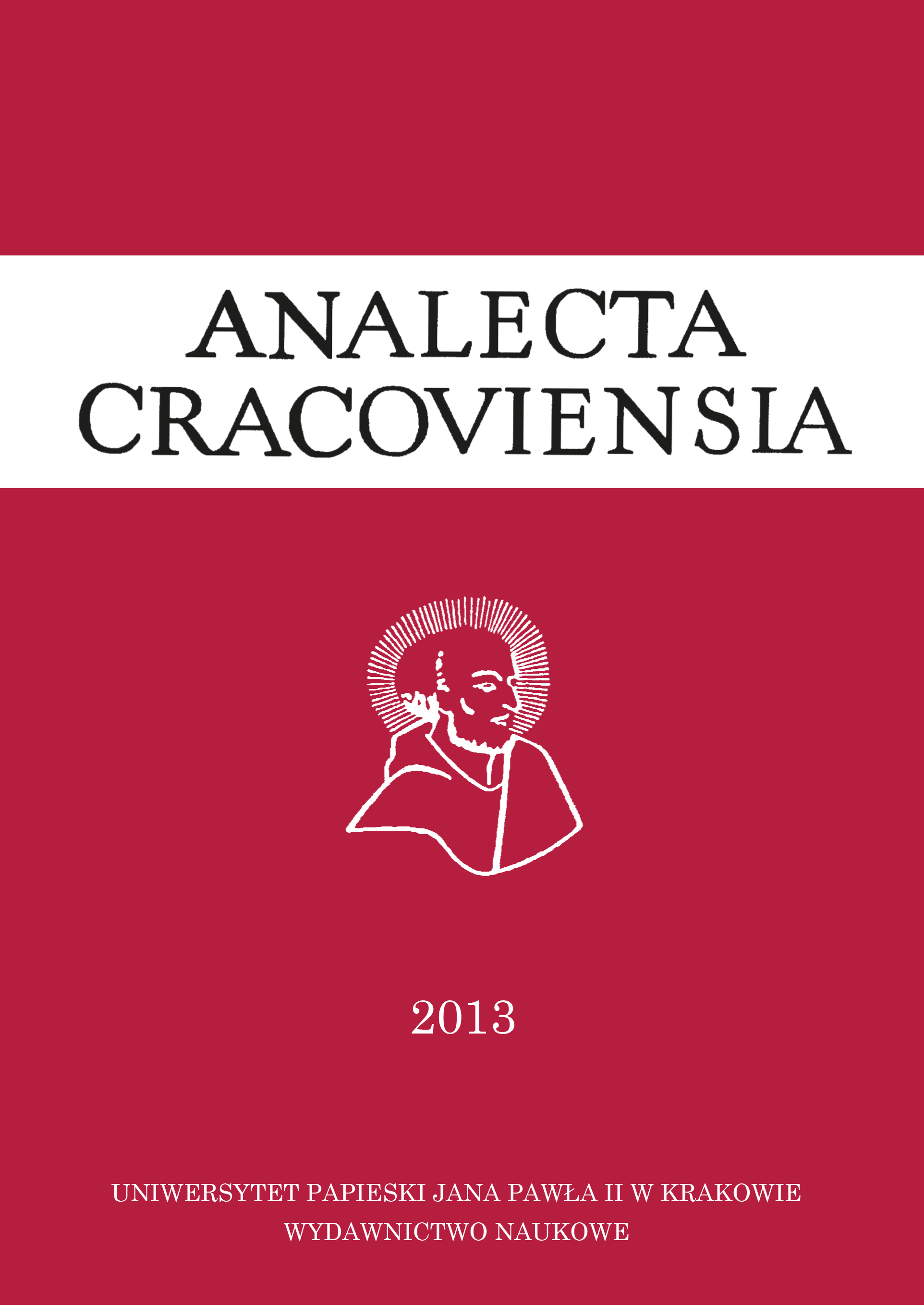The eternal act generatio of the Son as a model for theology, bioethics and the spirituality
DOI:
https://doi.org/10.15633/acr.1132Keywords:
Begetting the Son, dogmatic theology, bioethics, procreation, spirituality, image of GodAbstract
The article analyzes the influence of the dogmatic truth of the begetting of God’s Son by the Father for theology, bioethics and spirituality. The inner life of God is a main subject of the theological reflection. God the Father is in the incessant movement to another – to the Son. He is still begetting His Son in eternal now. There is why theology should describe God not in static or stagnant terms but as a being in constant act of forgetting about himself; as a primal source of all constructive activity in the world. The act of begetting the Son has also its repercussions for bioethics, especially these concerning every human procreation. The Father is begetting His Son in Himself and in the act of love. The same conditions are supposed to be kept in case of the conception of every child. Because the procreation is a participation of man in the God’s creation, it should take place in the act of love and inside the female body. As for spirituality, the eternal act of begetting the Son by the Father shows the inner orientation of every human life as a service for others and the attitude of self-offering.
Downloads
Published
Issue
Section
License
Copyright (c) 2015 Andrzej Muszala

This work is licensed under a Creative Commons Attribution-NonCommercial-NoDerivatives 3.0 Unported License.
Authors who publish with this journal agree to the following terms:
- Authors retain the copyright and full publishing rights without restrictions, and grant the journal right of first publication with the work simultaneously licensed under a Creative Commons Attribution 4.0 International License that allows others to share the work with an acknowledgement of the work's authorship and initial publication in this journal.
- Authors are able to enter into separate, additional contractual arrangements for the non-exclusive distribution of the journal's published version of the work (e.g., post it to an institutional repository or publish it in a book), with an acknowledgement of its initial publication in this journal.
- Authors are permitted and encouraged to post their work online (e.g., in institutional repositories or on their website) prior to and during the submission process, as it can lead to productive exchanges, as well as earlier and greater citation of published work (See The Effect of Open Access).

